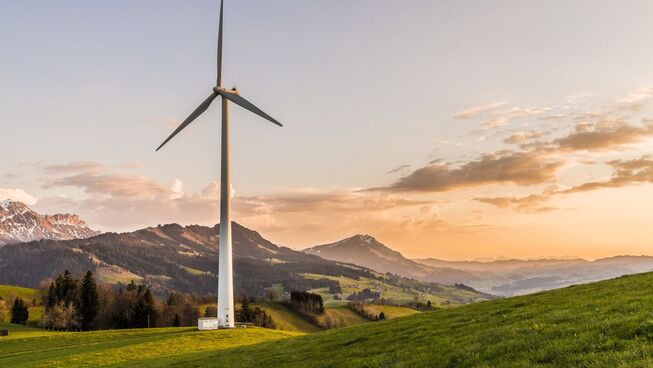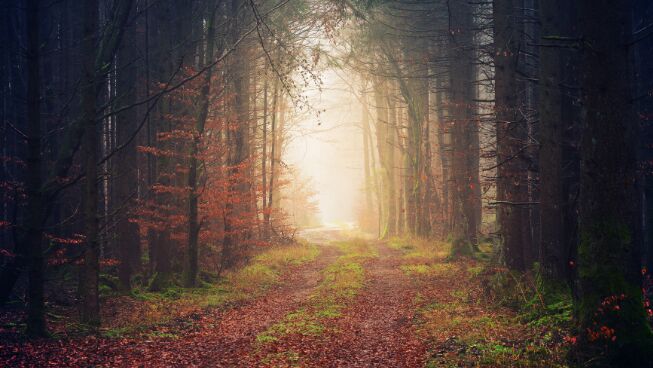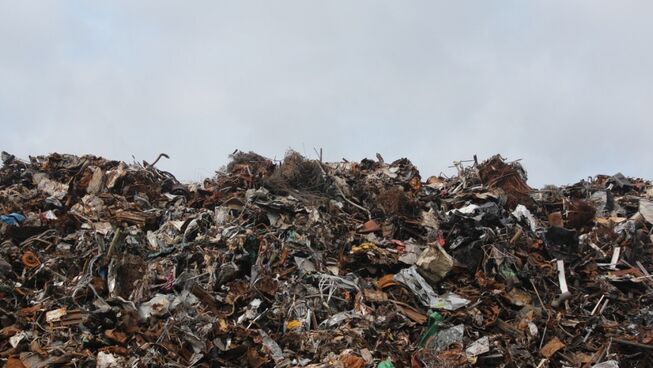Ep 179: Why preserve anything?
So just how catastrophic were the bushfires of last summer? We consider the impact of the bushfires and why we should be concerned about preserving anything at all. We discover that the standard answers to this big question are surprisingly difficult.
Our guest: Professor Michael Clarke (Professor of Zoology at La Trobe University)
This conversation was recorded in partnership with St Augustine's Anglican Church in Moreland.
Invest in Bigger thinking for as little as US$1 per podcast on Patreon.
Bigger Questions asked in the conversation
Mike - just to clarify - you haven’t ever played cricket for Australia have you?
Do you think the cricketer Michael Clarke ever gets confused for you and gets asked questions on fire and fauna?
Now you appeared as an expert witness in fire ecology at the Victorian Bushfires Royal Commission. What did you tell them?
Smaller Questions
Now, we like to kick off Bigger Questions with some smaller questions - just to get us thinking. Today we’re asking Dr. Michael Clarke about why we should preserve the environment. So Mike, our smaller questions today are about things worth preserving.
Impact of fire on fauna
So Mike, whilst not a World Heritage area - the Wilson’s Promontory National Park is still a very special place? You have spent a lot of time researching there?
Weren’t you doing some research at Wilson’s which ignited your interest in the impact of fire on fauna?
What happened to the honeyeaters?
But aren’t Australia’s plants and animals designed to withstand fire?
So then Mike how catastrophic was the ecological impact of the bushfires in Australia in early 2020?
Why preserve anything?
That raises various emotional responses for many people and it does lead us to consider today’s big question and how much we should be concerned about preserving what’s left. Now you often ask today’s big question ‘why preserve anything?’ to students you teach - how do they go answering it?
Can the different responses be justified?
So how do you answer this question?
The Bible’s answer: God’s creatures are worth preserving for their own sake
The Old Testament book of Psalms, was a bit like the song book for the Ancient people of Israel. Psalm 104 is a creation Psalm which outlines an interpretation of the voices of the various components of God’s creation. Verses 12-13 say
The birds of the sky nest by the waters;
they sing among the branches.
He waters the mountains from his upper chambers;
the land is satisfied by the fruit of his work.
Now Mike, you are one of Australia’s leading ornithologists - an expert on birds - so how do you react when you read about birds nesting by the waters and singing among the branches as a part of God’s creation?
It says that the land is satisfied by the fruit of his work - is there something intrinsic in the land that warrants special care?
The Psalm goes on in verses 16-18 and says,
The trees of the Lord are well watered,
the cedars of Lebanon that he planted.
There the birds make their nests;
the stork has its home in the junipers.
The high mountains belong to the wild goats;
the crags are a refuge for the hyrax.
It says that the high mountains belong to the wild goats, the crags are a refuge for the hyrax - I’m not even sure I know what a hyrax is, but it seems to imply that there are places in God’s creation for his creatures - they seem to ‘belong’ there - is that a motivation to preserve them?
So how do you reconcile a passage like that with your experience of the honeyeaters at Wilson’s Prom which were wiped out after a fire?
The overall message of Psalm 104 is summarised in verse 24 which says,
O Lord, how manifold are your works!
In wisdom you have made them all;
the earth is full of your creatures.
What does this tell us about why it’s worth preserving anything at all?
But isn’t Christian theology the problem?
But some have argued that Christian theology has been blamed for the modern ‘ecological’ crisis. In the 1960’s Lynn White wrote a very influential paper where he claimed that Christian theology taught that ‘nature had no reason for existence save to serve man’. Creation was a slave to the whim of humanity. So doesn’t Christian theology push away from preserving anything?
There can be a sense in which ecology and preservation is tough work - lots of hard work and effort in preserving things - the Christian message is one of grace, of unmerited favour - how do you process this apparent conflict of ideas?
The Big Question
So Mike, why preserve anything?





